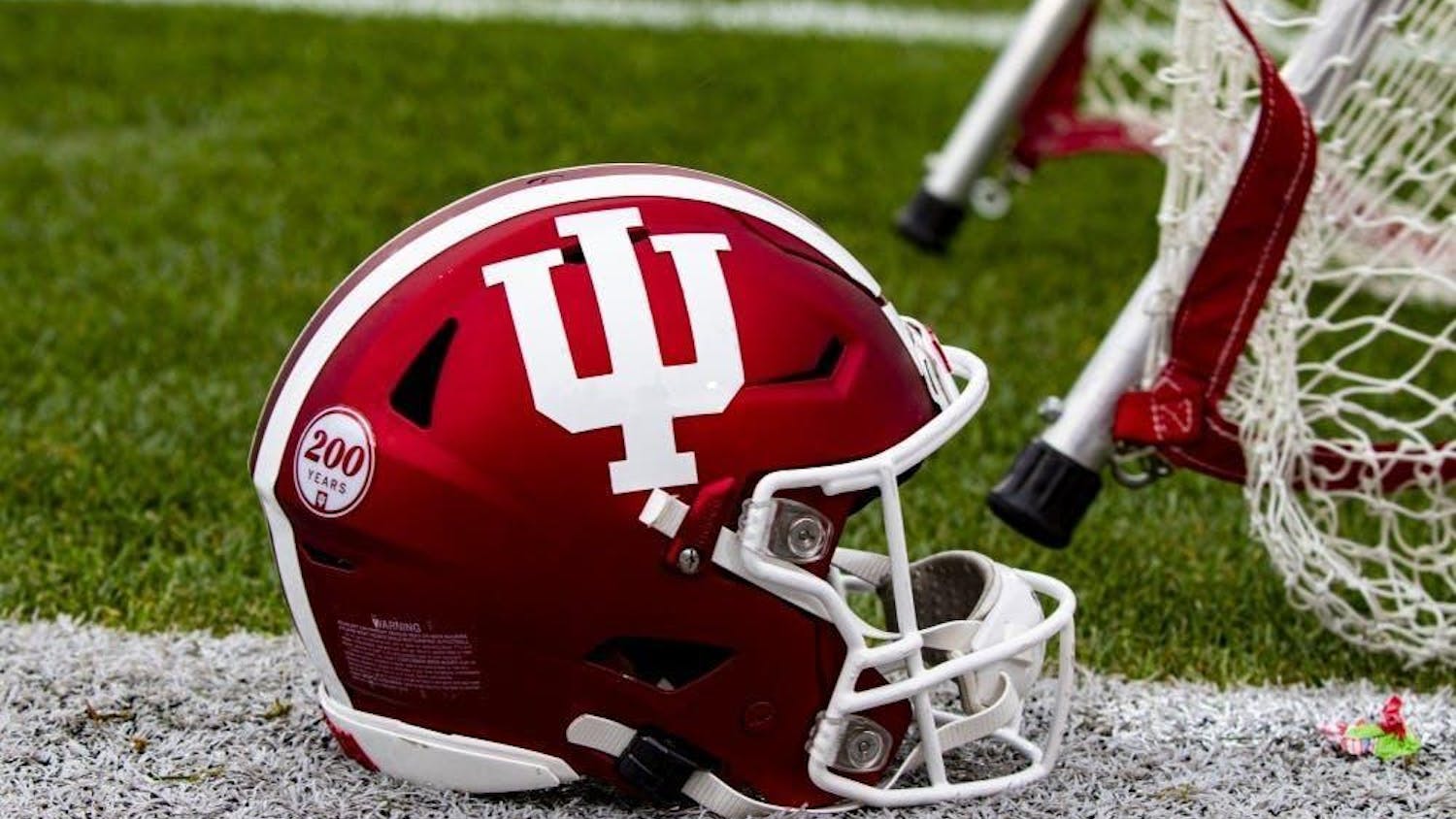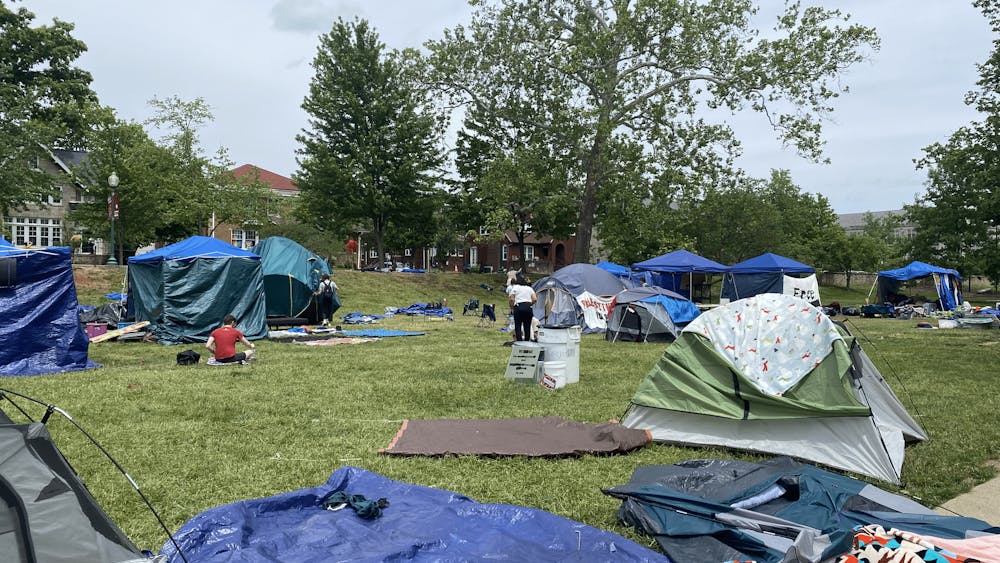Alex Hines, a brother in Lambda Chi Alpha , is a newlywed. During homecoming, he and a woman in Theta Phi Alpha decided to get hitched, not in an act of official matrimony, but in a greek wedding.
“It’s basically just like an informal ceremony,” Hines said. “It’s just kind of a funny thing where one of the brothers is a priest. We have to do fake vows and all that.”
Karissa Niedzwiecki, a sister in Phi Mu, also attended a greek wedding between a sister in her house and a brother in Delta Upsilon.
“There’s always a tradition to have a greek wedding during homecoming week,” Niedzwiecki said.
Greek weddings are common and casual, and they’re typically done between best friends, Niedzwiecki said.
“It’s kind of like somebody who you’re getting married to is one of your best guy friends, somebody you always have a good time with or someone you feel safe with,” she said.
When two greeks get married, they don’t just get a husband or wife, though. They also get a whole new family.
When a student becomes a brother in the greek system, he is usually assigned a “big,” also known as a “greek mom” or “greek dad,” depending on the terminology a particular house uses. And it goes further than that.
“Obviously, when I get a ‘little,’ I become a ‘big,’” Niedzwiecki said. “And then my ‘big’ will be a ‘grand-big,’ and then her ‘big’ will be a ‘great-grand-big.’”
Greeks will sometimes trace back these histories, said Allison Davies, president of Alpha Xi Delta.
“I know my family tree because we have it recorded,” she said. “It’s just kind of a tradition thing. It’s also good for alumni relations if you were to contact that alumni and be like, ‘Isn’t it cool we’re in the same family tree?’”
Davies said the purpose of a “big” is to show her “little” the ways of the house and to incorporate new pledge classes with the older members.
“The purpose of it is so you have a role model in the house,” Davies said.
In Neidzwiecki’s case, she’s a twin: her “big” has two “littles,” which she said gives her an extra-special family bond.
“I know my twin and I in the house, we are so close,” she said. “We’ll be like, ‘Not only is she my sister, she’s
my twin.’”
So, when students join the greek system, they get an entire family tree. And when a greek marriage occurs, those families combine.
“Say I get greek married,” Niedzwiecki said. “It’s kind of like in-laws.”
In other words, her husband’s greek “dad” or “big” would become her “dad-in-law.”
“Then,” she said, “whoever I’m married to will be my ‘little’ greek’s ‘dad.’”
When Niedzwiecki and her twin get “littles,” those “littles” will be cousins. Hines said he technically has in-laws now.
“Families are kind of combined, I guess,” he said. “I have a ‘little’ ... so now, I guess you could say he’s my son, but it’s just something funny to say.”
Neidzwiecki said greeks often get married with ring pops and fake bridal parties.
“It’s nothing proper or anything,” she said.
Hines said he got married simply to get to know his “wife” and Theta Phi better.
“It was good to get to know her,” Hines said. “Good to get to know all the other ladies in the house. It was definitely a good time.”
Niedzwiecki said she might get greek-married in the future.
“I mean, I think it would be a lot of fun because I have a lot of good guy friends in fraternities,” she said. “But you can never plan for it.”
Greek houses build community through weddings
Get stories like this in your inbox
Subscribe





